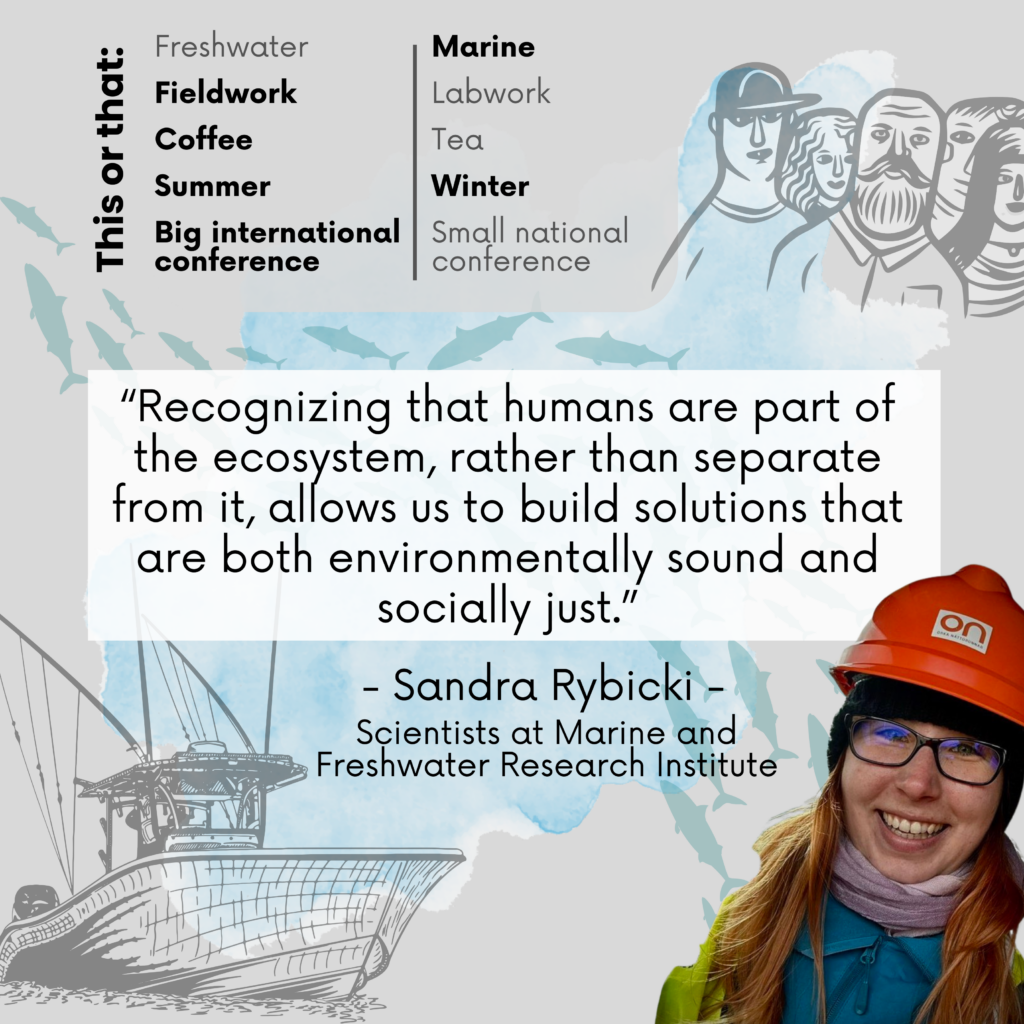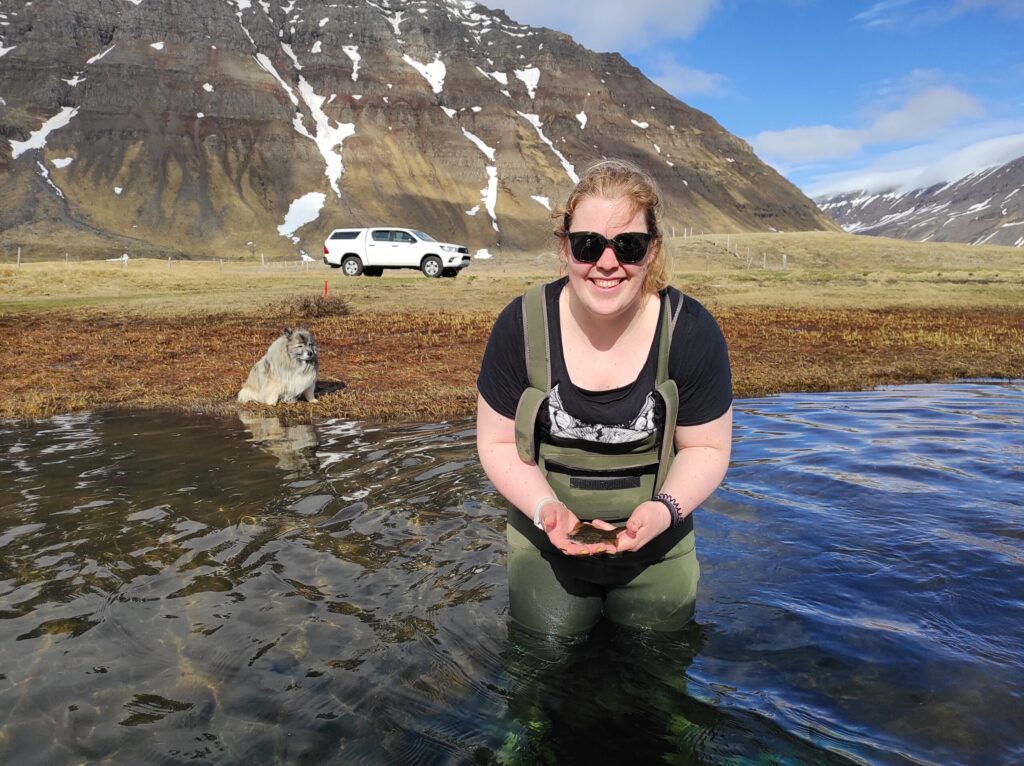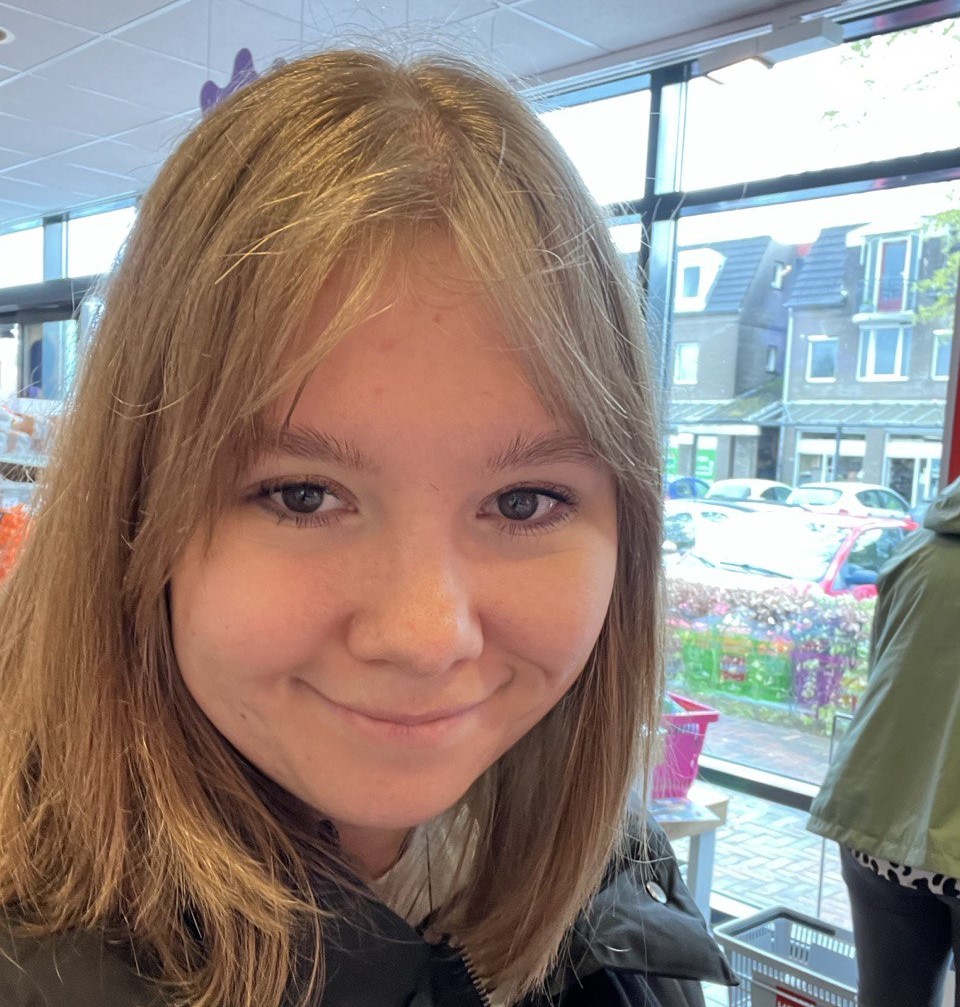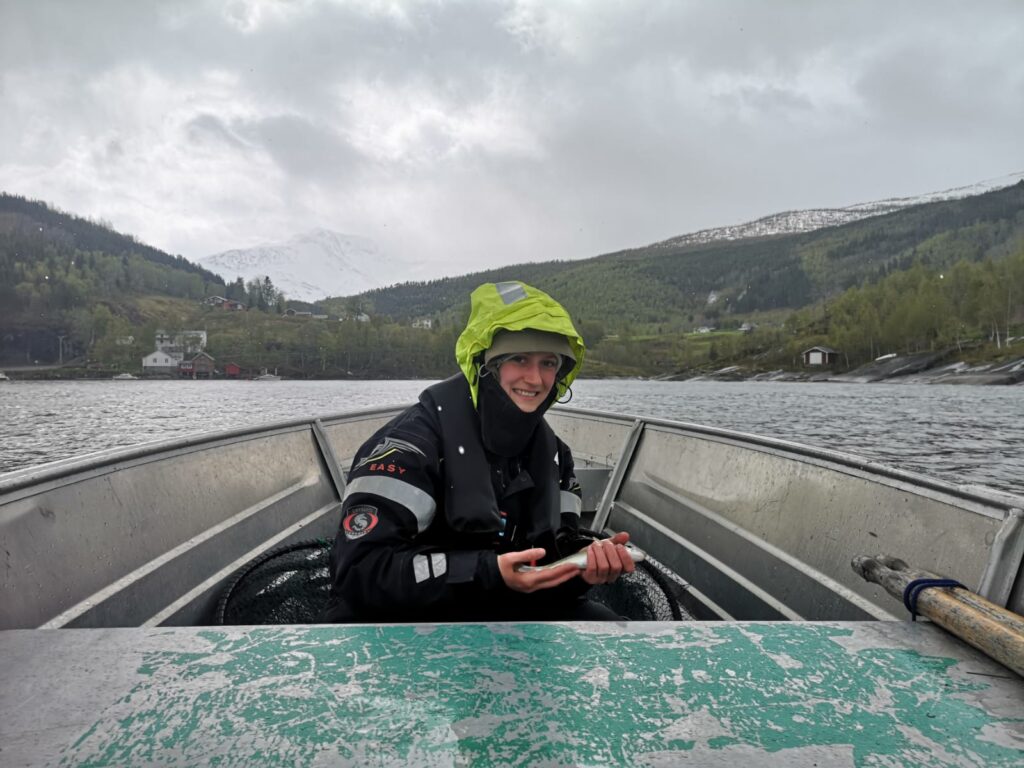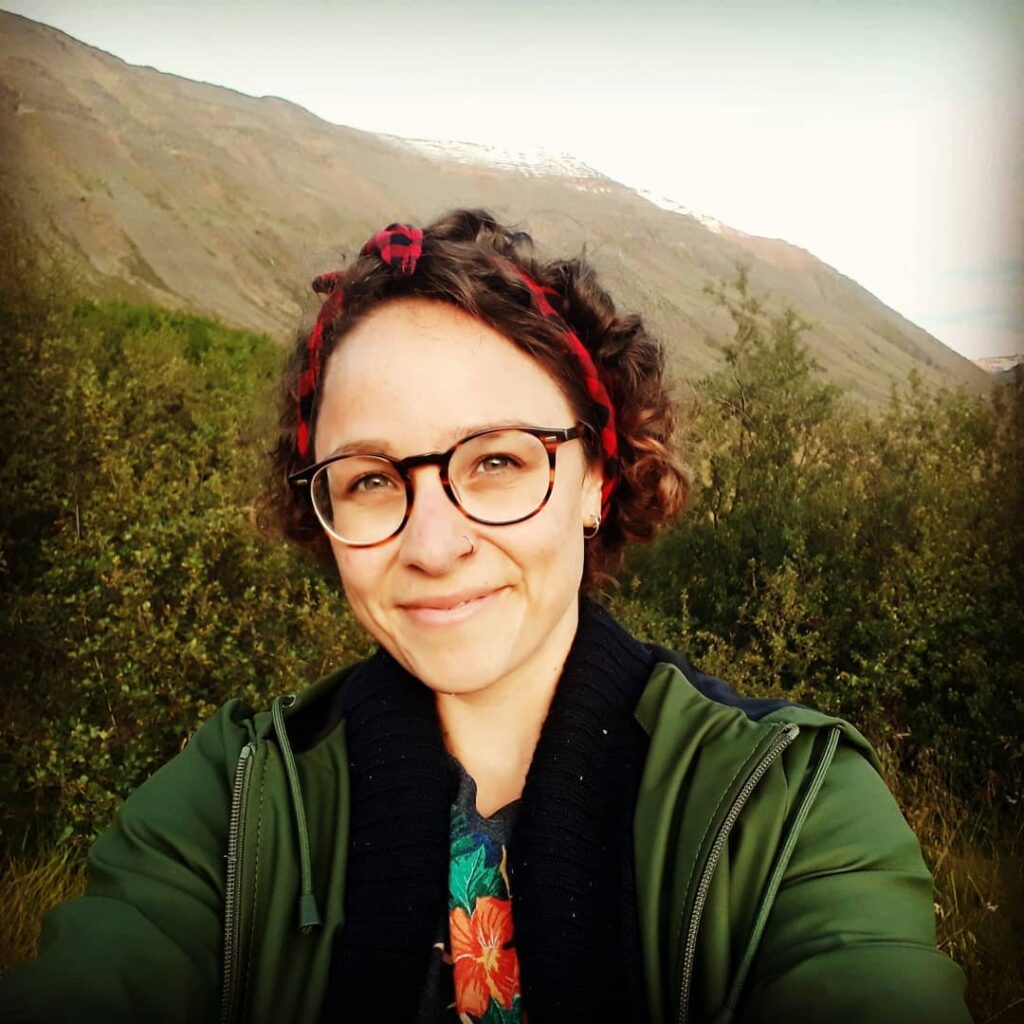The human perspective of fisheries – Meet Sandra Rybicki
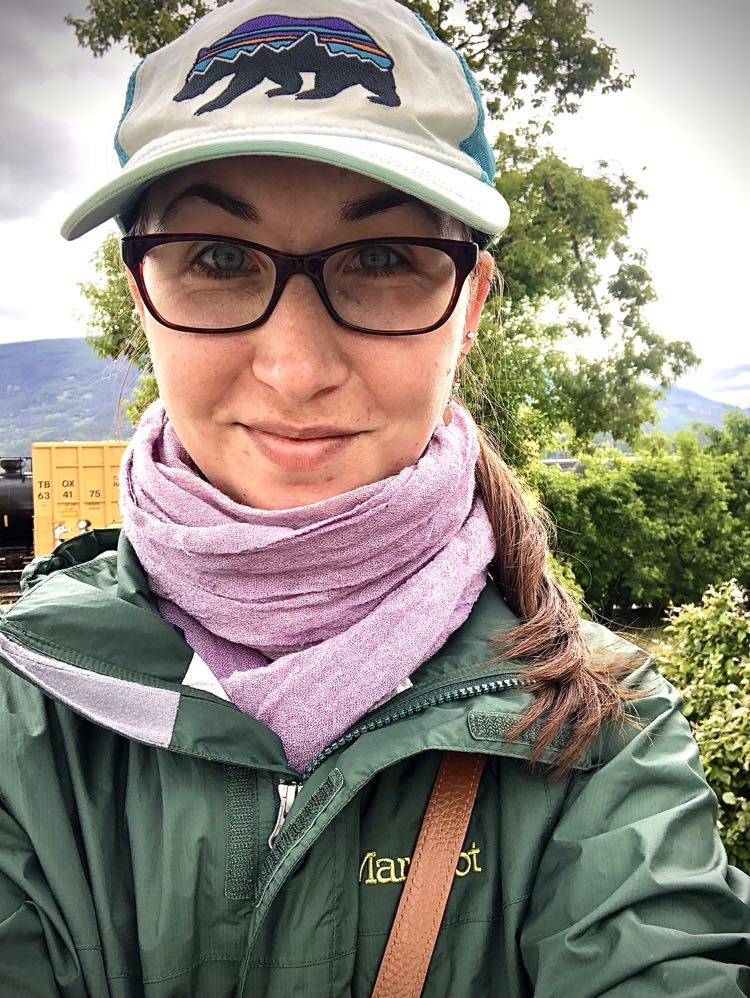
The human perspective
Can we really understand and protect nature without looking at the role humans play in it? Can we regulate and manage fisheries without knowing how these are shaped by local traditions, what values they hold for local communities, and how people depend on them to provide livelihoods and food security? These are some of the questions that have shaped the research interests of Sandra Rybicki, a scientist at the Marine and Freshwater Research Institute working on the relationships between environmental changes, sustainability, fisheries, and human communities. In her research, she combines ecological data with socio-economic perspectives to explore the effect of climate change and impacts due to human activity on marine and freshwater resources. Her work is driven by interdisciplinary collaboration, the engagement of stakeholders in the research, as well as science communication.
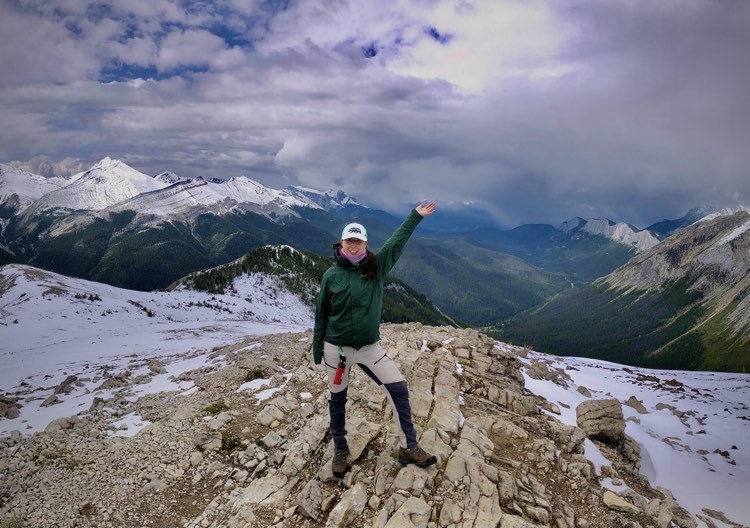
From fields and forest to lakes and oceans
Growing up in a small village in Germany surrounded by fields and forests, Sandra has alwas had a great connection to nature. But the wild and vast character of the oceans, full of unanswered questions took this fascination of nature to another level. This can be seen in her scientific journey, from taking a course on cetaceans (whales, dolphins, and porpoises) that got her initially hooked on the topic to now being based in Iceland where she actively contributes to the development of sustainable solutions that balance conservation, resource management, and cultural resilience in Icelandic fisheries. Additionally, she has been sharing her knowledge and experience as a supervisor and mentor in the GRÓ-FTP program and, in turn, she got to learn from her students about Indonesian and African ecosystems, including lakes, inland aquaculture, and the dynamic connection of small-scale fisheries and sciences in these regions. All of these experiences combined have shaped her perspective that the nature of fisheries research and management goes beyond species and catch numbers and should work for the people who rely on these resources while also protecting the ecosystems that sustain them. Understanding the human perspectives will help us move beyond one-size-fits-all-conservation models and instead help us develop solutions that consider both ecological sustainability and social well-being.
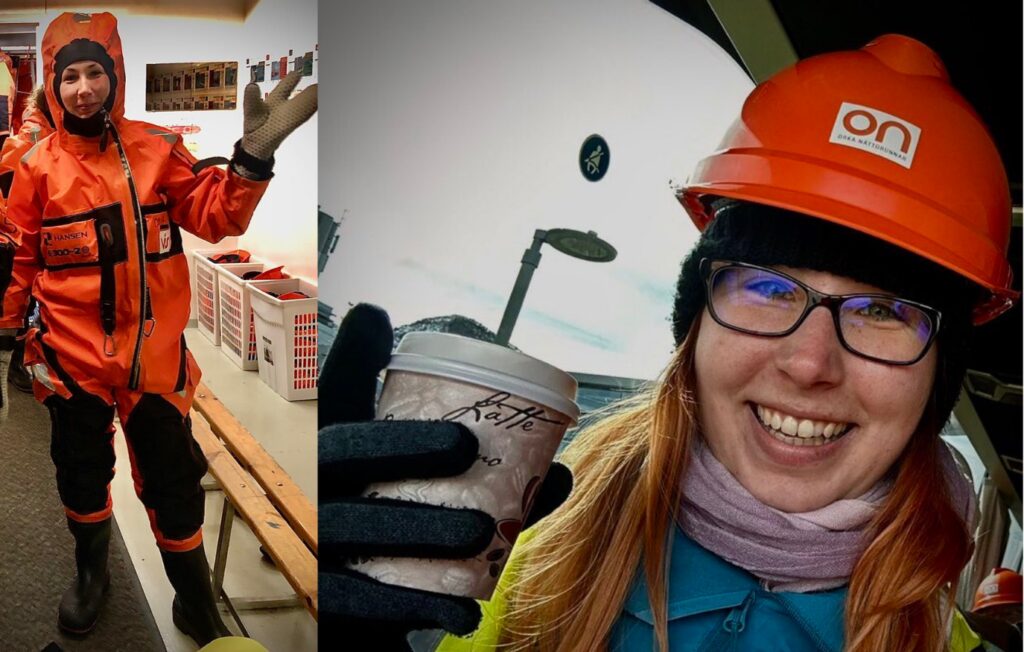
On being a scientist
Sandra truly enjoys being a scientist, especially the parts of the job where she gets to step away from the desk and on board of boats to do some hands-on work. In her opinion, being a scientist is so much more than a lab coat and published papers. Being a scientist means always learning new things, adapting to different situations and working with others, whether this is with other scientists, policy makers, or local communities. Doing research should not just be about collecting data, it should rather be about understanding the bigger picture. She also highlights that a key part of doing science is communication. After all, science is not just done when the research is done, the collected results and insights need to be communicated and made available in an easily understandable way to other scientists, to policy makers, to stakeholder groups as well as the general public.
As an advice for future PhD students, Sandra points out that a PhD is never just about the research and becoming an expert. It is about the skills that you develop along the way, whether that is learning that setbacks and unexpected results are not failures or learning to step back to see the bigger picture. Choose a topic that truly excites you. Passion and curiosity will keep you motivated during the tough moments, and the best work comes when you genuinely enjoy what you’re exploring.
